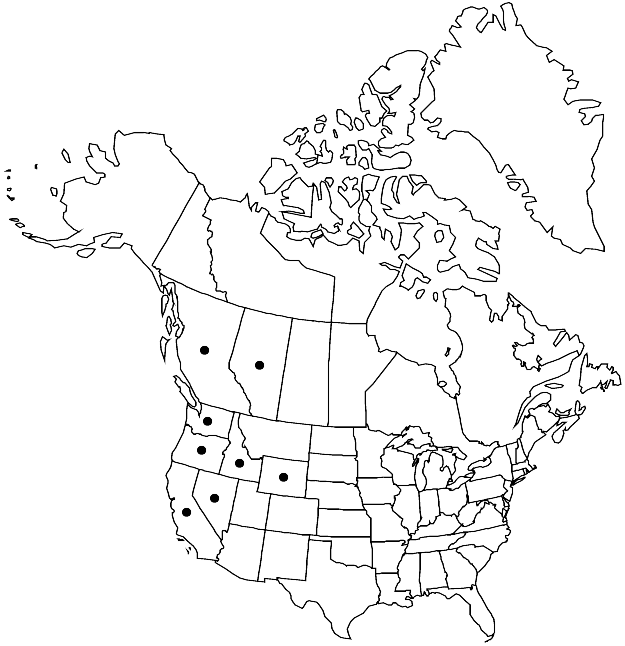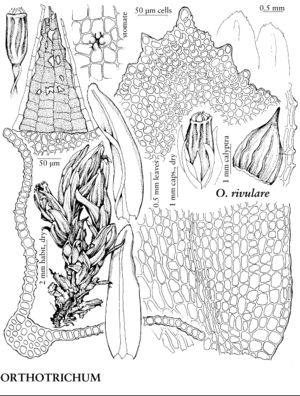Difference between revisions of "Orthotrichum rivulare"
Muscol. Hibern. Spic., 96, plate 8. 1804.
FNA>Volume Importer |
FNA>Volume Importer |
(No difference)
| |
Revision as of 22:05, 16 December 2019
Plants 1–5 cm, dark green to blackish. Stem leaves erect and loosely appressed when dry, oblong-lingulate, oblong-lanceolate, or ovate-lanceolate, 2.8–5 mm; margins strongly revolute to just below apex, usually irregularly dentate at apex; apex obtuse, flat; basal laminal cells rectangular to short-rectangular, walls thin, not nodose; distal cells 10–13 µm, 1-stratose, papillae 1–3 per cell, conic, small. Specialized asexual reproduction absent. Sexual condition gonioautoicous. Seta 1–1.5 mm. Capsule barely to 3/4 emergent when dry, immersed when moist, oblong to oblong-ovate, 1.5–2.5 mm, strongly 8-ribbed entire length; stomata immersed; peristome double; prostome sometimes present; exostome teeth 8, sometimes splitting to 16, erect, loosely reflexed when old, irregularly papillose, papillae usually confluent forming longitudinal striae; endostome segments 16, occasionally rudimentary, usually of 1 row of cells, finely papillose. Calyptra long-rostrate, papillose, naked. Spores 10–17 µm.
Habitat: Exposed tree roots, base of trees along streams, siliceous boulders at edges of streams and rivers, frequently inundated rock, aquatic habitats
Elevation: low to moderate elevations (0-1000 m)
Distribution

Alta., B.C., Calif., Idaho, Nev., Oreg., Wash., Wyo., Europe.
Discussion
Orthotrichum rivulare is distinguished from all other species in the genus by: leaves often obtuse with margins dentate near the apex; calyptra plicate with projecting edges papillose, otherwise smooth and naked; 16 endostome teeth; and stomata completely covered by overarching subsidiary cells. A key differentiating feature from O. euryphyllum is the flat, dentate apex.
Selected References
None.
